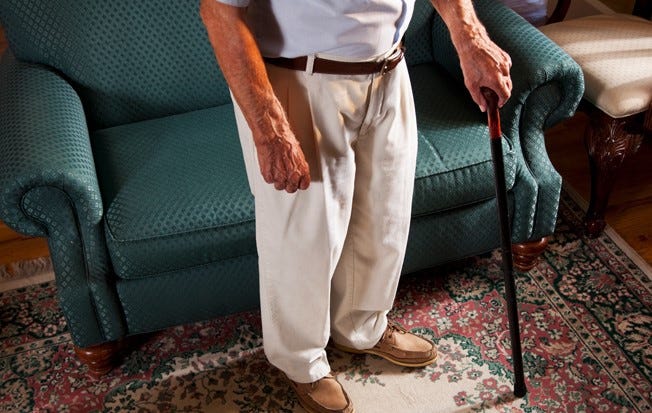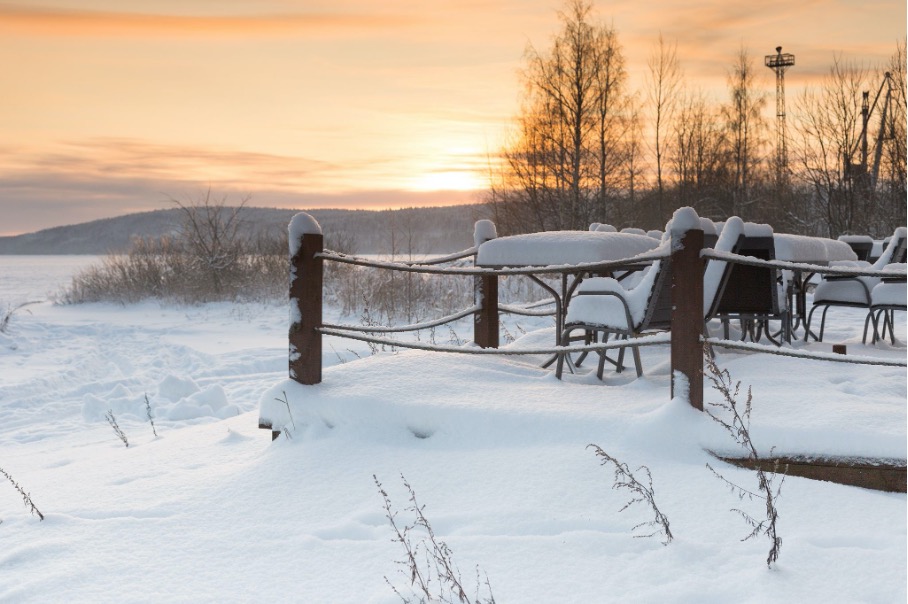If Thanksgiving week was any harbinger, this holiday season will be among the most-traveled in recent memory.
For the most part, COVID-19 restrictions have been lifted and folks are eager to reconnect with family, friends and loved ones across the country.
And that certainly includes seniors and the elderly.
More from Dorfman:Highlights from Health Matters
Latest celebrity health:Duran Duran rocker Andy Taylor missed HOF induction because of prostate cancer complications
However, cautions Steven Snell, owner of Always Best Care Senior Services-Treasure Coast, the holidays do carry some extra concerns for the health and well-being of your senior loved ones.
“While the holidays are a great time for seniors to travel and reconnect with family, healthful routines can be — and often are — disrupted,” he explains. “For instance, workouts might get skipped. Rich, holiday-season meals and treats might replace important dietary needs. Throw in other complications associated with traveling — say, contracting COVID, the flu or any illness — and it’s easy to understand how some seniors wind up suffering though the holiday season.”
Another potential risk factor for seniors during the holidays is how some folks — unaccustomed to imbibing alcohol — may become intoxicated after only one drink, or even just a few sips. There’s also the possibility of alcohol interacting with prescription medications.
Beware interactions between meds and holiday cheer
“Drug interactions are a significant problem with older adults,” said Dr. Barbara Krantz, director of Addiction Medicine and medical director of the Older Adult Program at Caron Florida medical treatment center in Boca Raton. “With aging comes more prescriptions and more risks when there are drug-to-drug interactions. In addition, as people age they take longer to metabolize alcohol so the effect of alcohol lasts longer than a younger person. The same amount of alcohol we drank when we were younger starts to have more effect as we age, especially when mixed with prescription medications. Sometimes these problems stay hidden and only are brought to the surface when gathering for the holidays or other celebrations.”
That’s why younger folks should always be on the lookout for their older relatives starting to slur their speech and/or look unsteady on their feet after alcoholic beverages are served.
Snell notes that recent research has identified the following as the biggest challenges seniors and the elderly face during the holidays:
- Traveling alone
- Disrupted routines
- Missed medications
- Unhealthy diet
- Time spent sedentary
- Loneliness
- Too much activity
So Snell offers the following advice for helping your senior and elderly loved ones navigate this holiday season.
Prep for better holiday travel
Visiting with loved ones during the holidays is often a source of joy, but traveling can be physically taxing on seniors.
One recommendation Snell has is that your senior loved one visit his or her doctor before they pack their suitcase.
“A senior’s doctor can clear them for travel, offer tips to reduce stress, and recommend medications to ensure they stay healthy,” says Snell. “They can also give tips on traveling with medications and when to take such medications over the holidays. If the doctor prescribes medication specifically for travel, be sure your loved one checks to ensure there won’t be any unintended side effects with other meds.”
More from Steve Dorfman:10 tips for holiday good health and good food
Senior health:Ivana Trump’s death reminds us how dangerous falls can be. Here’s how to reduce your risk
Another factor to consider is making sure there is enough time allotted for rest after traveling. Travel can be tiring for the fittest among us — “but especially for seniors, whether they travel by car, train, or plane” says Snell.
So before engaging in any activities immediately after arrival, seniors would be well-advised to consider resting or even taking a brief nap in order to recharge.
Snell also lists a few other travel tips that seniors (and really everybody) should consider:
- Ask for enough prescription medication to cover time away. Talk to a doctor about how time zones might affect medication schedules.
- Bring copies of important documents like health insurance and emergency numbers.
- Give copies of travel itineraries to loved ones.
- Carry medications and essential items on the plane or in the car in case of emergency or disruptions to plans.
- Wear a medical ID if needed.
- Use hand sanitizer and wash hands frequently to avoid germs.
- Ask for an escort or wheelchair to help infirmed seniors traverse airports safely.
- Drink plenty of water and non-alcoholic fluids to stay hydrated.
Dealing with changes to routine
While disrupted routines are especially concerning for seniors with dementia or Alzheimer’s, all older adults will likely benefit from a bit of advance planning to counteract their changes in routine.
“When a senior has dementia or Alzheimer’s, preparation can mean the difference between peaceful moments and difficult behaviors,” says Snell.
Prepare loved ones for holiday get-togethers by sharing your plans a few weeks ahead of time. Talk about what they can expect and who else will be there. Use pictures to help them identify the faces they will see. If your senior loved one has specific dietary needs, be sure that fare is always available.
Here are Snell’s other quick tips to ensure those with Alzheimer’s or dementia stay healthfully and happily involved in the holidays:
- Offer holiday activities, like decorating, crafting, or selecting gifts.
- Make healthy versions of holiday food favorites.
- Encourage family members to ask seniors about their traditions and memories.
- Encourage family to help by listening, sympathizing, and reminding seniors of their faith or values.
- Encourage social activity, even if it’s using technology on platforms like Zoom.
Keeping homes safe
If older loved ones spend the holidays at a home other than their own, be sure the host family doublechecks the home for accessibility and safety.
“If you’re hosting older loved ones, keep an eye out for tripping hazards in the home,” says Snell.
He also believes that “having seniors sleep on the first level of a two-story home is preferable for easier access to the kitchen and bathroom. In addition, nightlights are always a good idea to help prevent stumbles in the dark.”
Here are a few more quick tips to keep your home safe for visiting senior loved ones:
- Remove throw rugs. While these may be decorative, they often lack a rubberized backing to better grip the floor.
- Clean up piled clutter. This includes newspapers, loose clothes, and shoes.
- Create a more open environment. “This will be easier to do if the senior doesn’t have mobility issues and doesn’t need a wheelchair,” explains Snell. “If a wheelchair is needed, doorways should be at least 32 inches wide.” Also consider any tight corners before or after a doorway: “These may restrict access and make maneuverability impossible,” cautions Snell.
- Position all extension cords so there’s no possibility of walking over them.
- Encourage your guests to wear non-slip footwear when inside your home.
















